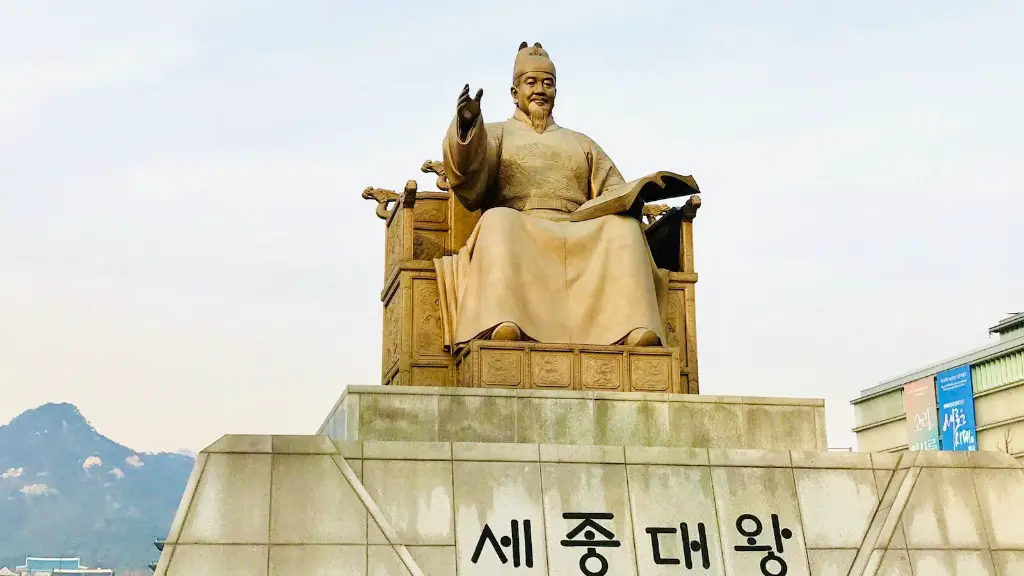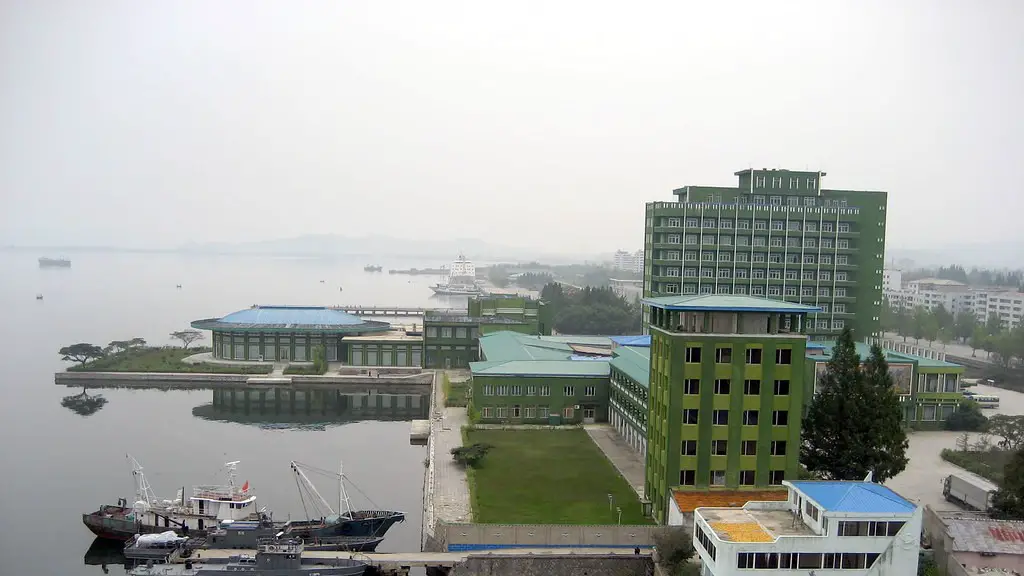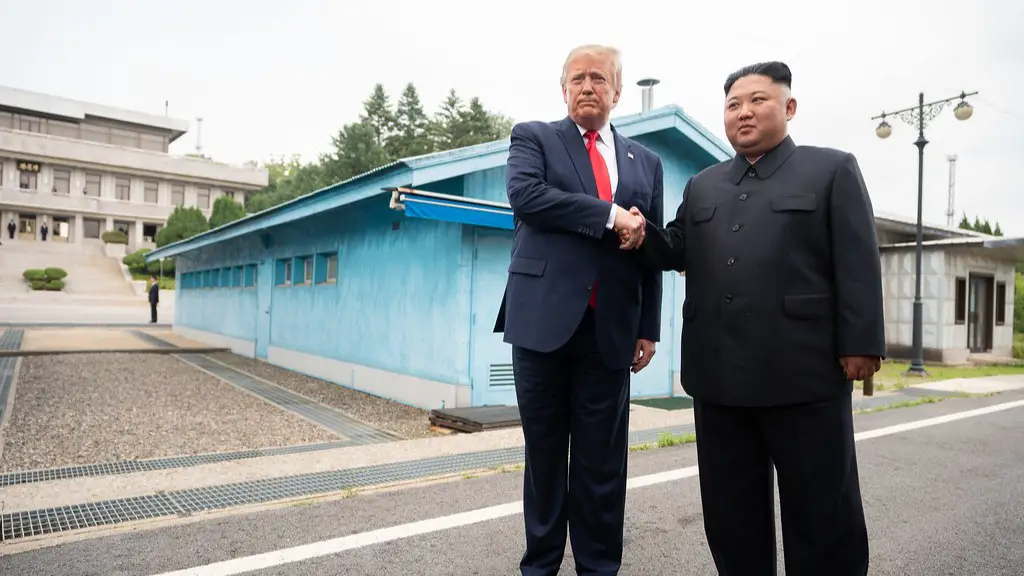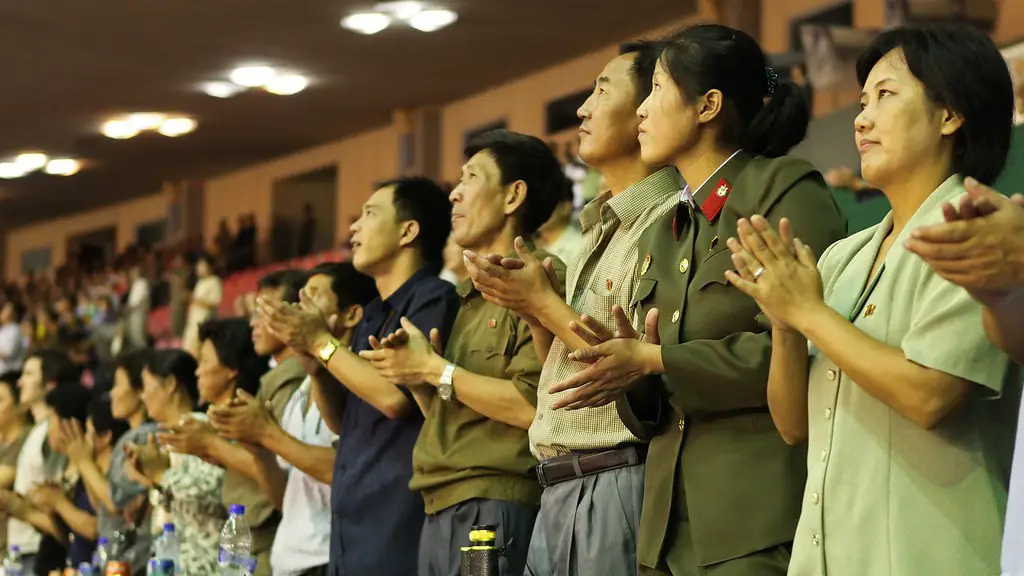Understanding North Korea
North Korea is a mysterious place largely hidden from the eyes of the rest of the world. It has been described by some as an isolated hermit kingdom that has managed to remain untouched by global politics and modernity. Why is it so closed off? The following delves into the reasons behind North Korea’s isolation.
History of Instability
North Korea’s tumultuous history sets the stage for it to remain an authoritarian state. As one of the last remaining dynasties in the world, it is no surprise that the majority of the population still lives in poverty and struggles for basic necessities. Further contributing to its isolation is its legacy of politically oppressive regimes. At the end of World War II, the Korean peninsula was divided into two, with North Korea under communist rule and South Korea under a democratic government. Since then, North Korea has remained closed off from the world, largely due its oppressive regime.
Political Unrest
The North Korean government has become increasingly hostile towards the international community. North Korea has long been regarded as a rogue nation and a major potential threat to global security. Its nuclear capabilities, coupled with its near-constant state of political unrest, have led to it being labeled as one of the world’s most dangerous countries. The United Nations Security Council has repeatedly condemned North Korea for its human rights violations and its pursuit of nuclear weapons.
Regime Control
In order to maintain power over its population, the North Korean government has implemented a number of oppressive and restrictive policies. These policies have kept the people trapped in a cycle of poverty and lack of education. The government also tightly controls the media and the flow of information. Access to the Internet, international media outlets, and cell phones are all tightly regulated by the government and only a few people have access to them. All of these factors contribute to North Korea’s relative isolation.
Propaganda Machine
The North Korean government keeps its isolated population in line with a strict propaganda machine. People are bombarded with propaganda images and messages by the state-run media outlets. The media constantly portrays the North Korean regime in a positive light and propagates a narrative of national pride and unity. This creates an environment in which people are encouraged to conform to the expectations of the state, which reinforces North Korea’s seclusion from the rest of the world.
Economic Struggles
North Korea’s economic struggles are another factor that has kept it from engaging with the international community. The North Korean economy is largely dependent on international aid, as the government does not have much of its own sovereign wealth. As a result, it has an extremely limited budget for international engagement and diplomatic missions. Furthermore, most of the citizens have no access to the global financial markets, thus preventing any sizable investments into the economy.
Harsh Laws
In addition to economic struggles, North Korea has a variety of oppressive laws which keeps the population in check. Political expression and protest are strictly prohibited by the government, and there is a heavy emphasis on maintaining public order. Citizens are subject to regular punishments, such as public executions, labor camps, and detention, for anyone who defies the government.
Social Constraints
The government also implementing a wide range of social constraints in order to maintain control over the population. This includes restrictions on travel, with citizens being prevented from leaving the country as well as limited access to foreign media outlets. Further, there are also restrictions on the types of clothing and hairstyles allowed, as well as a strict dress code. All of these factors contribute to North Korea’s relative isolation.
Fear of Western Influence
North Korea has long feared the spread of Western influence, which it sees as a threat to its regime. As such, it has closed its borders and actively sought to block outside influences, such as foreign music, movies, and literature. This has been done in order to maintain control of the population and prevent the people from being exposed to outside ideas, which could potentially lead to a popular uprising or regime change.
Cultural Impact
The North Korean regime’s isolation policies have had a significant impact on the country’s culture. As a result of its seclusion, the country has developed a unique and distinct culture and way of life, which differs from the rest of the world. For example, the language and dialect, traditional music, and even the food have been heavily influenced by the country’s political and economic situation.
Continuing Isolation
Despite recent attempts to engage with the rest of the world, North Korea remains largely closed off. This is largely due to the government’s fear of opening up to outside influences and its continued pursuit of nuclear weapons. Exacerbating the situation is the continued lack of economic opportunities and the oppressive regime. In order for the country to begin to open up and bring its citizen out of poverty and isolation, it must first find a way to gain the cooperation of the international community.
International Diplomacy
Recent diplomatic efforts to engage North Korea have been largely unsuccessful, due to the country’s continued pursuit of nuclear weapons and a lack of progress on human rights. However, some progress has been made recently. In 2018, North Korea engaged in summits with the United States, South Korea, and China, leading to some hope that the country is beginning to open up.
Political Change
Regardless of any diplomatic efforts, the only true way for North Korea to open up is from within. In order for there to be any real progress, the people of North Korea need to push for more liberal political policies that will allow for more freedom and engagement with the outside world. Only then can North Korea begin to truly open up and alleviate its own isolation.
Hope for the Future
Despite all the issues facing North Korea, there is still cause for optimism. North Korea’s seclusion has not been absolute, as it has been able to engage in limited and controlled forms of interaction with the rest of the world. This interaction has given the rest of the world a glimpse into the country and provides hope that there may be a brighter future for it.



